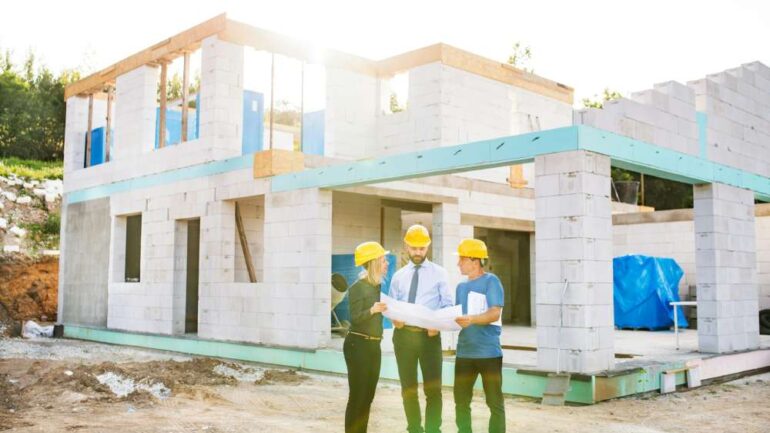Buying a new construction home is an exciting opportunity that allows you to tailor your living space to your preferences. As a prospective homeowner, delving into the world of newly built properties comes with its own set of considerations. New construction homes offer the latest designs, energy-efficient technologies, and can potentially save you money in the long term. However, like any real estate investment, purchasing a new construction home requires careful planning and an understanding of the process. This article will guide you through what you need to know, from selecting the right builder to understanding the purchase agreement.
Understanding the Benefits of New Construction Homes
New construction homes are increasingly popular among homebuyers for several key reasons that set them apart from pre-owned homes.
Customization and Personalization
One of the main attractions of new construction homes is the ability to customize and select finishes to match your tastes and lifestyle. Often, builders offer various floor plans and design options, allowing you to choose everything from the layout of the home to minor details like fixtures and cabinetry. This level of personalization means you can shape a space that truly feels like your own.
Advanced Technology and Energy Efficiency
New homes come equipped with the latest advancements in technology and construction materials. They are often more energy-efficient, featuring better insulation, modern HVAC systems, and energy-efficient windows and appliances. This can result in lower utility bills and a reduced environmental footprint, providing long-term savings.
Minimal Maintenance
A new construction home typically requires less maintenance than an older home. Everything is brand new, meaning fewer worries about replacing roofs, HVAC systems, plumbing, or electrical work in the near future. Builders often provide warranties, giving additional peace of mind about the reliability of your new home.
Finding and Choosing the Right Builder
Not all builders are created equal, and choosing the right one is crucial to ensuring a smooth homebuilding process.
Research and Recommendations
Begin by researching local builders with a reputation for quality and reliability. Look for reviews and ask for recommendations from friends or family who have experience with new construction homes. Visiting completed neighborhoods and talking to current residents can also provide insight into a builder’s reputation.
Licensing and Certification
Ensure that your builder is licensed in your state or region. You can verify this information through local government websites or housing authorities. Certifications from industry organizations can also indicate a builder’s commitment to quality and standards.
The Importance of Model Homes and Tours
Visiting model homes is an excellent way to gauge a builder’s craftsmanship and style. Pay attention to the details, such as the quality of materials and finishes. Ask questions about what is included in the base price and what final product differentiations might be expected.
Financing Your New Construction Home
Once you’ve selected a builder, understanding your financing options is the next critical step.
Construction Loans vs. Traditional Mortgages
Purchasing a new construction home often involves different financing arrangements than buying a pre-owned home. You may require a construction loan to cover costs during the building process. Once construction is complete, the loan is typically converted into a traditional mortgage. It’s important to discuss these options with a mortgage broker who has experience with new builds.
Pre-Approval and Budget
Obtain pre-approval for a mortgage early in the process to understand your budget and the price range you can afford. This step ensures you are looking at homes within your financial reach and can proceed confidently when it’s time to make an offer.
The Purchase Agreement and Your Rights
A clear understanding of the purchase agreement is essential in protecting your interests.
Reading the Fine Print
Purchase agreements for new construction homes can be complex. They outline all aspects of the deal, including timelines, costs, and contingencies. Take the time to read and understand every detail, and consider hiring a real estate attorney to review the contract.
Builder Warranties and Protections
New homes generally come with builder warranties that cover defects in workmanship, materials, and sometimes structural elements. Verify what the warranty covers, its duration, and how disputes are resolved. Understanding these terms can save you from unexpected expenses and issues after moving in.
Final Steps to Closing and Moving In
As your home nears completion, there are a few final steps before you can move in.
Home Inspections
Even with new construction, it’s wise to hire an independent inspector to ensure everything is built to code and your expectations. An inspection can uncover issues that need to be addressed before closing.
Closing Process
The closing process involves finalizing your mortgage and the purchase agreement. Be prepared for this step by ensuring all documentation is in order and fully understanding any closing costs.
Welcome Home
After closing, it’s finally time to move in and enjoy your new home. Take some time to familiarize yourself with your new property’s systems and features. Settling into a new community can also be a rewarding experience, opening the door to new friendships and opportunities.
Purchasing a new construction home can be a gratifying endeavor when equipped with the right knowledge and resources. By understanding the intricacies of the process and aligning with experienced professionals, you can smoothly transition into your newly built home, enjoying all the modern comforts it provides.





